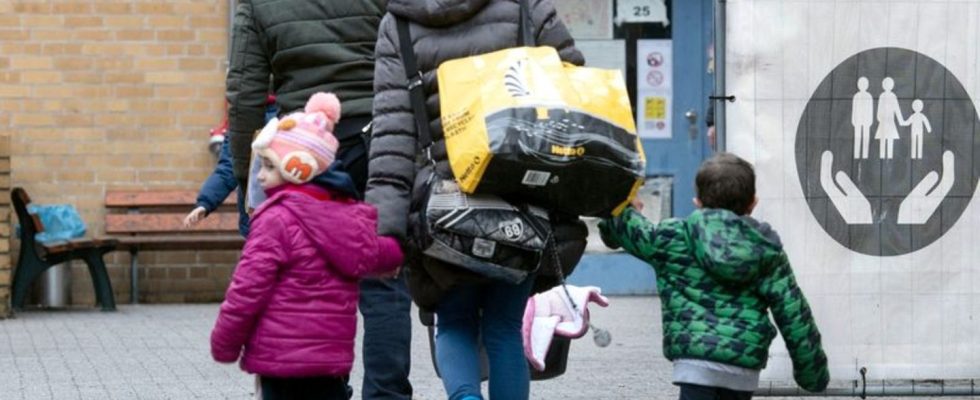migration
Habeck: Exclude families with children from border procedures
People who have fled their homeland enter the grounds of an initial reception center in Berlin. photo
© Paul Zinken/dpa
For years, the EU countries have been arguing about a common asylum reform. This week it is also about a possible examination of asylum applications at the EU’s external borders. The Vice Chancellor finds this problematic.
In the run-up to important EU consultations on a possible asylum compromise, Vice Chancellor Robert Habeck supports the position of Foreign Minister Annalena Baerbock (both Greens).
Baerbock wants to ensure that families with children, for example, are exempt from possible preliminary checks on asylum applications at the EU’s external borders. Border procedures are “without question problematic,” said Habeck, according to a statement on Monday night. “Border procedures need borders. People have to be housed and cared for. They can only be there for a short time. Families with children and pregnant women should be exempted.”
On Thursday in Luxembourg, the EU interior ministers will discuss the reform of the Common European Asylum System (CEAS), which has been controversial for years. Among other things, it is about the question of whether there should be preliminary checks on asylum applications at the EU’s external borders. The federal government wants to ensure that minors under the age of 18 and families with children do not have to go through these procedures. Baerbock had also made a corresponding statement. The original proposal of the EU Commission already says: “Unaccompanied children and children under the age of 12 with their family members are exempt from the border procedure, provided there are no security concerns.”
“Hard negotiations in Brussels”
Baerbock explained in the newspapers of the Funke media group that the commission’s proposal was the only chance of arriving at an “orderly and humane distribution procedure” in the foreseeable future. “That’s why we’re negotiating hard in Brussels to ensure that nobody gets stuck in border procedures for more than a few weeks, that families with children don’t get caught up in border procedures, that the core of the right to asylum isn’t eroded.”
The EU consultations offer a “realistic chance to arrive at a humane and orderly distribution mechanism in the current situation and to give those seeking protection who are fleeing war and torture a perspective in Europe,” Habeck continued. “And I think Annalena Baerbock is right: it’s worth the work.”
“We haven’t had a functioning European asylum system for many years, with the result that people are drowning in the Mediterranean, and that families are stuck in degrading conditions in camps at the borders for years,” complained Habeck. Too often the EU countries are left alone at the external borders.
“Particularly protect children and other vulnerable groups”
Federal Interior Minister Nancy Faeser (SPD) supports the project of border procedures, but also told the “Handelsblatt”: “We want to protect children and other vulnerable groups in particular.”
The background to the EU consultations is the increased number of migrants. For months, many have been trying to reach southern Italy from North Africa via the Mediterranean. According to information from Rome, more than 50,000 migrants have come to Italy on boats since January. According to the UN refugee agency UNHCR, more than 980 people have died or have been missing since the beginning of the year. In Germany, the Federal Office for Migration and Refugees received a good 100,000 initial asylum applications in the first four months of this year, an increase of around 78 percent.

